Clever Jew Made Millions from Dead Daughter (Pub. 1980)
by Dr. William L. Pierce
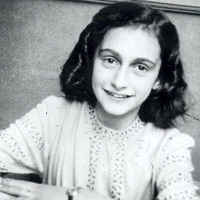 TUCKED AWAY ON pages 119 and 122 of the October 6 issue of Der Spiegel, a weekly German news magazine comparable to Time or Newsweek, was a news item of considerable significance: A scientific analysis of the manuscript purported to be the original diary of Anne Frank, a Jewish girl who died in a German concentration camp during the Second World War, has revealed that the manuscript could not have been written before 1951, six years after the end of the war.
TUCKED AWAY ON pages 119 and 122 of the October 6 issue of Der Spiegel, a weekly German news magazine comparable to Time or Newsweek, was a news item of considerable significance: A scientific analysis of the manuscript purported to be the original diary of Anne Frank, a Jewish girl who died in a German concentration camp during the Second World War, has revealed that the manuscript could not have been written before 1951, six years after the end of the war.
The significance of Der Spiegel’s revelation of this fraud is twofold. First, the printing of the story in a mass-circulation publication constitutes a major break with past treatments of similar news. The German news media, though not under the Jewish monopoly control which blights the media in this country, generally follow a pro-Jewish line, a heritage from the immediate postwar years when the Allied occupation forces gave publishing licenses only to those Germans who had proved their disloyalty to their country during the war. Consequently, most news tending to cast doubt on Jewish stories about gas chambers and the like from the World War II era has either been blacked out altogether or downplayed and given very unsympathetic treatment. The present article, though accompanied by copious apologies and held back for six months after it became news, would not have been printed at all a year or two ago.
Beyond this, the exposure of the Anne Frank forgery is important because of the sheer magnitude of the fraud and the key role it has played in underpinning the entire Jewish scenario of the war. What is known as a fact is that one Otto Frank, a Jewish merchant, formerly of Frankfurt, who had been arrested in the Netherlands and interned in the Auschwitz concentration camp during the war, began visiting publishers in 1946 with what he claimed was a diary written by his young daughter during the time the Frank family was hiding from the German police in occupied Holland. The girl later perished at Auschwitz, Frank said.
The diary, filled with touching adolescent reveries and homely little anecdotes, was exactly what the Jewish “Holocaust” propagandists were looking for: a highly effective piece of ammunition to generate a maudlin, emotion-laden sympathy for the poor, persecuted Jews — as typified by Anne Frank — and generate hatred against the wicked Germans, who had killed her and six million other Jews.
Otto Frank cashed in on the diary in a big way. Not only did he find a publisher, but he found people hot to buy stage and film rights as well. Shortly after its appearance in book form, the diary had been translated into a score of languages and printed in millions of copies, from all of which Frank received royalties. The English version alone, under the title Anne Frank: The Diary of a Young Girl, has sold more than 4,000,000 copies to date. A television dramatization based on the diary was aired in this country last month, accompanied by the usual ballyhoo.
Almost from the beginning there were charges that the diary was a hoax. Some of these charges were based on the gross inconsistencies between various translations and editions of the diary in book form; it was clear that the text had been heavily edited to help it sell well in different markets. Other charges were based on internal inconsistencies and credulity-straining elements in the diary itself.
And then there was the matter of the script for the film version of the diary: Otto Frank was sued by a New York scriptwriter, Meyer Levin, who claimed that Frank had taken large portions of a script he, Levin, had written and had not paid Levin for his work. The court ordered Frank to pay Levin $50,000. One can easily understand why some observers began to wonder how much, if any, of the content of the various Anne Frank books, films, and plays in circulation was actually written by a little Jewish girl named Anne Frank.
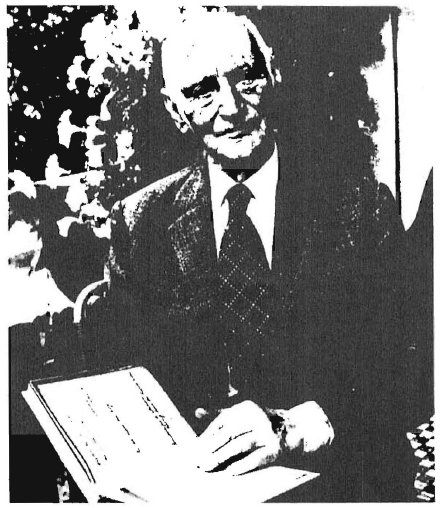 Otto Frank, father of Anne, displays what he says is his daughter’s diary, written in 1942–1944 while hiding from the Gestapo. Recent scientific tests have proved the alleged diary could not have been written before 1951. Frank made millions from his forgery before his death this year.
Otto Frank, father of Anne, displays what he says is his daughter’s diary, written in 1942–1944 while hiding from the Gestapo. Recent scientific tests have proved the alleged diary could not have been written before 1951. Frank made millions from his forgery before his death this year.
In Germany, however, it was not wise to speculate about such matters publicly. The line laid down by the government and the media is that Anne Frank is gospel, and anyone who suggests otherwise leaves himself open to criminal charges (“defaming the victims of Nazi persecution”) as well as to civil suits. Otto Frank himself made a regular habit of hauling Anne Frank detractors into German courts, which invariably decided in his favor — until recently, that is.
When Hamburg pensioner Ernst Roemer, 76, began spreading the accusation that Otto Frank had himself written what he was passing off as his dead daughter’s diary, Frank sued him. As usual, the court upheld the authenticity of the diary. Handwriting experts testified that the entire diary, including loose notes and insertions, had been written by the same hand, and that hand was Anne Frank’s.
Roemer appealed the court’s decision against him, and more handwriting experts were called in. Their conclusion was the same: Everything in the diary was in the same handwriting; there was no forgery.
Roemer appealed again, and this time the court asked for the technical services of the Federal Criminal Office (Bundeskriminalamt, similar to our FBI), which carried out a careful analysis of the original manuscript of the diary with microscope and ultraviolet illumination in order to confirm its authenticity — in particular, to determine when it was written.
The report of the technical experts was given to the court in April of this year, and it contained a bombshell: large portions of the alleged “diary” were written in ballpoint pen ink — which was not manufactured prior to 1951!
Were it not for the previous testimony of the handwriting experts that the entire diary, including the portions written with ballpoint pen, is in the same hand, the father might have claimed that he only “edited” his daughter’s work, “clarifying” passages here and there. But the evidence was quite unambiguous.
For example, the testimony of Hamburg graphologist Minna Bekker in an earlier trial was: “The handwriting of the diary in the three bound volumes — including all notes and additions on the glued-in pages as well as the 338 pages of loose material — including all corrections and insertions is identical . . .”
Otto should have been more careful in his choice of writing instruments. It is now quite clear that he finished hoking up the “original” of the diary after he had found a publisher for what, in 1946, was nothing more than some rough notes and an idea in his head which seemed to have prospects for making him a lot of money with little effort. First a typescript for the publisher, and then, as sales of the book began to mount, a completed handwritten “original” to show to doubters.
Just after the report of the Federal Criminal Office was given to the court, Otto Frank conveniently died — before he could be asked a number of very interesting questions. Meanwhile, the worldwide Jewish propaganda apparatus has continued its promotion of the Anne Frank myth as if nothing had happened. Der Spiegel seems to be the only mass-circulation news periodical to have exposed the fraud to date.
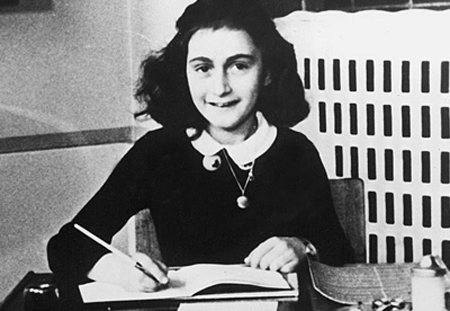 When Harriet Beecher Stowe wrote Uncle Tom's Cabin, she did so prompted by the highest of motives. Yet she, herself, relates the incident that when she first met Abraham Lincoln in 1863, he commented "So you are the little woman who wrote the book that made this great war!"
When Harriet Beecher Stowe wrote Uncle Tom's Cabin, she did so prompted by the highest of motives. Yet she, herself, relates the incident that when she first met Abraham Lincoln in 1863, he commented "So you are the little woman who wrote the book that made this great war!" 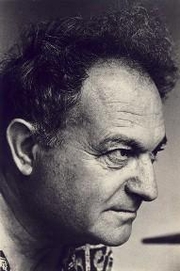 A noteworthy decision of the New York Supreme Court confirms this point of view, in that the well known American writer, Meyer Levin [R], has been awarded $50.000 to he paid him by the father of Anne Frank as an honorarium for Levin's work on the "Anne Frank Diary."
A noteworthy decision of the New York Supreme Court confirms this point of view, in that the well known American writer, Meyer Levin [R], has been awarded $50.000 to he paid him by the father of Anne Frank as an honorarium for Levin's work on the "Anne Frank Diary." 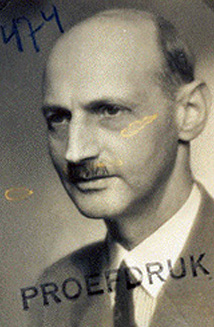 Mr. Otto Frank [L], in Switzerland, had promised to pay to prominent Jewish author, Meyer Levin. not less than $50,000 because he had used the literary creation of author Levin in toto, and represented it to his publisher and the public as his late daughter’s original work.
Mr. Otto Frank [L], in Switzerland, had promised to pay to prominent Jewish author, Meyer Levin. not less than $50,000 because he had used the literary creation of author Levin in toto, and represented it to his publisher and the public as his late daughter’s original work.